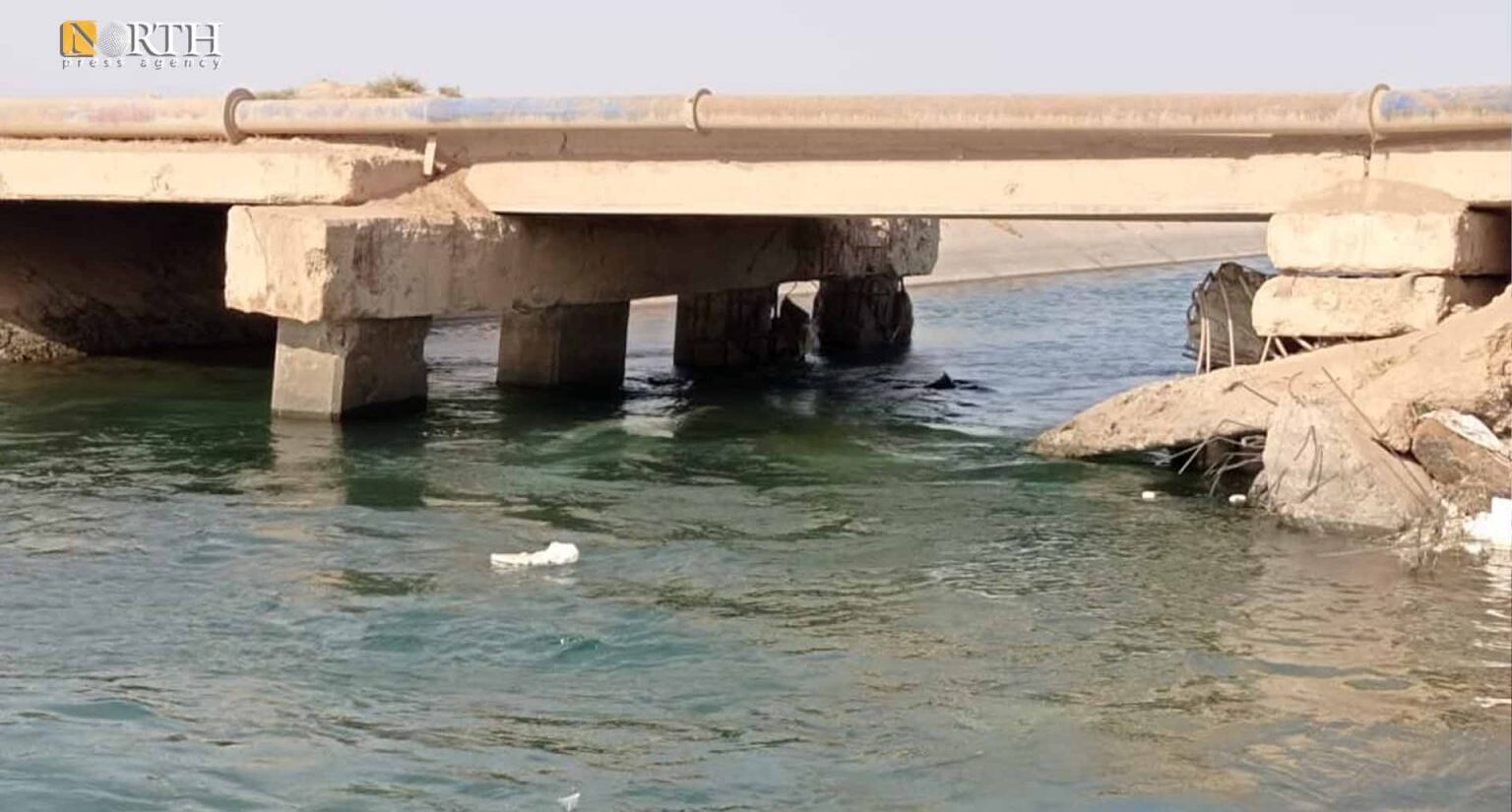RAQQA, Syria (North Press) – Ibrahim al-Ali, a resident of the village of Abu Wahl, 37 km east of Raqqa, northern Syria, drives his car to bring drinking water from an irrigation canal to his home, after the water station that was feeding his village and other nearby villages has been broken down since last year.
Residents of the villages of Abu Wahl, al-Tarifawi and Mleihan, east of Raqqa, are facing a complete interruption of drinking water as a result of a malfunction in the Abu Wahl water pumping station.
The station is located on an irrigation canal coming from the Euphrates River that used to irrigate these villages, but it has been suspended since last year due to an electrical failure.
Residents of the villages that were irrigated by the station suffer from traveling long distances to fetch water from the irrigation canal, while others buy it at exorbitant sums.
There are about 500 families in the three villages suffer from water shortage.
Hardship and extra burden
Al-Ali added that he has a car, which he uses it to fetch water despite the hardship and fatigue since last year, but those who do not have an alternative will have to buy it at exorbitant prices.
The problem of water outage does not affect the residents only, but also the livestock, as they constantly need water, al-Ali noted.
Despite the numerous appeals and complaints made by the villagers to the water unit to repair the station, but nothing changed.
Last year, the station was working for a few hours that did not fully meet the needs of its beneficiaries due to the lack of electricity.
Al-Ali believes that connecting a service power line to the station after repairing its generator will make water permanently available to all residents of the three villages.

Khalil al-Muhammad, a resident of the village of Mleihan, 40 km east of Raqqa, said the families of his village have been facing difficulty in securing water since the station stopped, “The water is not safe for drinking and some cannot afford it and get clean water from other sources.”
Some of the children in the three villages suffered from intestinal diseases resulting from the use of unsafe water they bring from the canal, or they buy it from tankers that are filled without filtering and sterilization, according to residents.
Since last winter, Turkey has reduced the flow of the Euphrates River towards Syrian territory, which has increased life problems and popular discontent in areas that depend on the river for drinking water and for irrigating agricultural lands.
Residents of the villages that were irrigated by the station are forced to buy drinking water from tankers at a price of 1,300 Syrian pounds per barrel, according to al-Muhammad.
He pointed out that he used to buy a barrel of water (220 liters) four months ago for 500 SYP, but with the increase in fuel prices, he is now buying it for 1,400 SYP (about $0.40).
Al-Muhammad hopes that the water unit will find a quick solution to ease the burden on the people who do not have access to water, “they face difficulty in affording water on a regular basis with daily necessities, especially after the deteriorating economic situation in Syria.”
Only promises, no real acts
Adnan al-Hazbar, official at the Hamrat and Karamah water unit of the Water Company in the Raqqa Civil Council, said the pump was working according to the hours of power delivery to the village, which ranged between one and two hours a day.
The power capacity that reached the station via the main lines was weak, which led to a malfunction.
Al-Hazbar added to North Press that there is a study for a project to install a service electric line for the pump.
The implementation of the project will start next week, and its completion period will be 20 days, according to the Hamrat and Karamah Water Unit.
Al-Hazbar indicated that if the station resumes service, it will operate continuously throughout the day.

